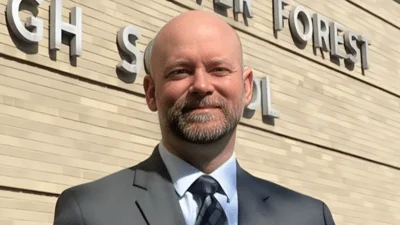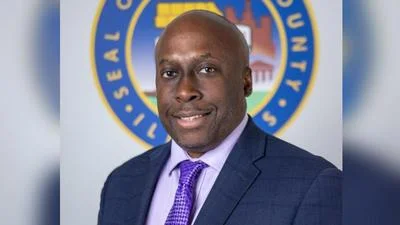Burr Ridge Mayor Emeritus Mickey Straub. | Mickey Straub website
Burr Ridge Mayor Emeritus Mickey Straub. | Mickey Straub website
About 1,000 protestors rallied at the State Capitol May 16, to voice their desire to reopen Illinois, the fourth such demonstration opposing Gov. J.B. Pritzker’s COVID-19 stay-at-home order within the past 30 days, according to media reports.
“I think the governor is doomed on his decision to do this,” said Mickey Straub, mayor emeritus of Burr Ridge. “I will be shocked if he doesn’t change his mind because he is catching a lot of heat with these protests.”
In addition to protests, Pritzker has been deluged with lawsuits over his most recently modified stay-at-home order, which expires on May 31, 2020, that was signed in response to a nationwide coronavirus outbreak.
As of May 16, there were 92,457 positive coronavirus cases statewide with 4,129 deaths, according to the Illinois Department of Health.
As previously reported in the Chicago City Wire, the new order is based on special emergency powers granted to the governor through the Emergency Management Act but the original 30-day disaster proclamation ended April 9.
“Anything beyond 30 days has got to be a violation of the First Amendment,” Straub told the West Cook News.
While Rep. Darren Bailey (R-Xenia) was freed from Pritzker’s order individually after being granted a temporary restraining order by a Clay County state court, Elim Romanian Pentecostal Church did not fare as well before the Seventh Circuit U.S. Court of Appeals.
“That's perplexing because I would think the state court would be more likely to be affected by local politics than the federal one,” Straub said in an interview.
On May 16, a panel of three circuit judges denied the church’s request for an emergency injunction and temporary restraining order that, if granted, would have relieved them of Pritzker’s order.
“The governor’s Executive Order 2020-32 responds to an extraordinary public health emergency,” the circuit judges wrote in the opinion. “The executive order does not discriminate against religious activities nor does it show hostility toward religion. The executive order’s temporary numerical restrictions on public gatherings apply not only to worship services but also to the most comparable types of secular gatherings, such as concerts, lectures, theatrical performances, or choir practices, in which groups of people gather together for extended periods, especially where speech and singing feature prominently and raise risks of transmitting the COVID-19 virus.”
The church originally sued Pritzker in Illinois Northern District Court on May 7, alleging that restricting religious gatherings to 10 persons violates the First Amendment constitutional right to free exercise of religion. However, the federal trial court, lead by U.S. District Judge Robert W. Gettleman, ruled against their request for a preliminary injunction and restraining order.
“I am shocked that a federal court of appeals would have approved it,” said Straub, current chairman of the Burr Ridge Veterans Memorial Committee. "I would think the First Amendment would protect the church. It’s ludicrous to me. We, in Illinois, are completely dominated by Democrats. The Constitution comes first.”
Meanwhile, Pritzker filed a motion to transfer Bailey’s lawsuit from Clay County to Sangamon County court but Judge Mike McHaney denied the request.
A hearing is scheduled for May 22 in Clay County court at 1 p.m. In Clay County, the Department of Health reports there are two positive coronavirus cases with zero deaths as of May 16.






 Alerts Sign-up
Alerts Sign-up